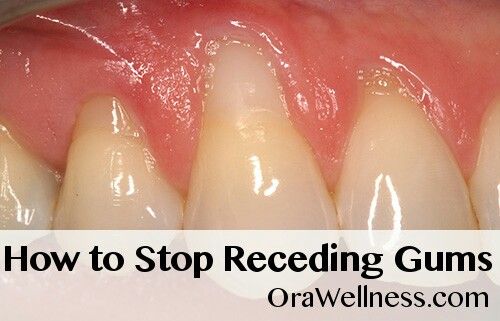
Gum recession is a condition that results from the loss of bone in the jaw, which usually occurs when there is an illness or injury to the jaw or gums. Some of the common causes of gum recession are:
- Periodontal Disease – An infection in the gums can weaken supporting bone structures and cause gum tissue to move backward into the jaw. A bacterium known as Periodontitis infects the supporting bone and causes severe inflammation that can be painful. A bacterial infection that occurs in the soft tissues can lead to loss of bone and can affect the bones of the gums and jaw as well. This infection is usually treatable by topical antibiotic treatment.
- Periodontitis occurs due to poor oral hygiene and improper care of the gums and teeth. Poor oral hygiene can also occur due to age-related wear and tear, which occurs due to age, improper cleaning of teeth and dental floss, and improper use of dental products. Worn toothbrush teeth can also make your gums weaken and prone to infection. Poor dental health leads to weakening of the gum tissue, leading to more problems that can lead to gum recession.
With periodontal disease, the jaw often looks crooked and weak, and the tooth can fall out. This problem is not so much a problem that can be solved overnight, but it can happen if the first steps are not taken to treat the condition and prevent its recurrence. Periodontal disease is a chronic disease that is very difficult to treat and interferes with the regular and healthy maintenance of good oral hygiene. Once the disease has been cured and proper care has been provided, it becomes easier for the gum tissue to maintain gum health and avoid gum recession.
Gum recession can also occur due to other factors such as diet, smoking, and genetics. Gum recession is also possible due to conditions that can affect the bone surrounding the gums, such as periodontitis. If a person has an injury to the jawbone, such as a fracture or deformation of one of the teeth, this can weaken or impair the ability to hold the jawbone together and support the gums. People with weak jaws can lose a lot of bone tissue due to the stress of daily life and food.
Gum recession can also occur due to excessive chewing, smoking, or even not flossing your teeth. All of these can lead to plaque build-up in the mouth and weaken the supporting bone.
Periodontal disease is a very common condition, and most people can tell you about how they suffered from it at one time or another. Gum recession can result from tooth decay and cavities that occur due to bacteria that take root and spread through the gums
If you notice that your gums are becoming tender, bleeding, and you feel like your gums are becoming dry or are looking inflamed, you should seek medical attention immediately. Do not wait until the condition worsens. Your oral health is vital to good oral hygiene and overall health of your jawbone and teeth, and you should seek treatment as soon as possible.
Regular dental hygiene, including brushing and flossing, is very important to keep the mouth clean. Periodontal disease is often caused by unhealthy dental habits and poor oral hygiene. If you notice that you have trouble brushing or if your teeth are starting to look chipped or cracked, then you should consult your dentist immediately to determine whether it is a sign of gum recession or a more serious dental issue. Brushing and flossing will help get your teeth and gums healthy again.
When it comes to the health of your teeth, mouthwash can have many benefits for your teeth and gums. Mouthwash can help prevent gum recession and keep them strong and healthy. It will reduce the amount of plaque that builds up in the mouth and help to prevent bacteria from spreading, which can lead to infection.
Gum recession can also be reduced with regular visits to the dentist to check for symptoms such as tenderness, bleeding, swelling, tenderness, and swelling or pain when brushing. If your dentist sees any of these symptoms, you should take action and get yourself checked immediately.